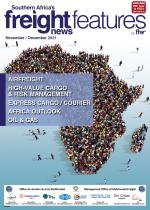Improving air connectivity between southern African countries remains a top priority for Airlink which recently inaugurated an air service between Angola and South Africa.According to Namhla Tshetu, executive manager corporate services, the route, which links the two countries’ economic hubs of Johannesburg and Luanda, will be operated three times weekly with a modern E-190 jetliner.“The Luanda-Johannesburg route is strategically important for Angola and for South Africa. It is crucial for trade and commerce between our two countries. It is a route we have wanted to launch for some time,” he said. “However, Covid-19 and the measures introduced to combat the spread of the infection, turned everyone’s plans upside down.”Tshetu said with infection rates in both countries improving, and the pace of vaccinations picking up, the prospect of increased travel, tourism and commerce, along with economic recovery and sustainability, was back on the cards. “It is a cause that Airlink is committed to promoting and we look forward to playing our part in this story,” he said, highlighting the importance of air connectivity in the region. “Our newest route is a perfect example of how air services will enable our two countries, with our different cultures, to pursue a shared objective of generating business opportunities and diversifying our economies,” said Airlink CEO and managing director, Rodger Foster, adding that the f lights on the route would provide greater choice and f lexibility for the transport of goods between the two countries. According to Tshetu, by stimulating economic growth in this way, air connectivity between Angola and South Africa had the potential to promote investment and unlock job opportunities which would help both countries meet the social challenges they face.He said the airline served more than 45 destinations in 13 African countries and had forged partnerships with several leading long-haul operators, which in turn had opened up the worldwide market for its customers – all part of an ongoing strategy to grow its footprint in Africa and open up the skies.A vital component in the air sector at present, however, was confidence, said Tshetu. “International and intra-African travel confidence was severely damaged by the uncertainties over the past 19 months.”He said an ongoing focus on safety was crucial, as was complying stringently with the regulations, measures and standards of the World Health Organization, International Civil Aviation Organisation and the International Air Transport Association.

